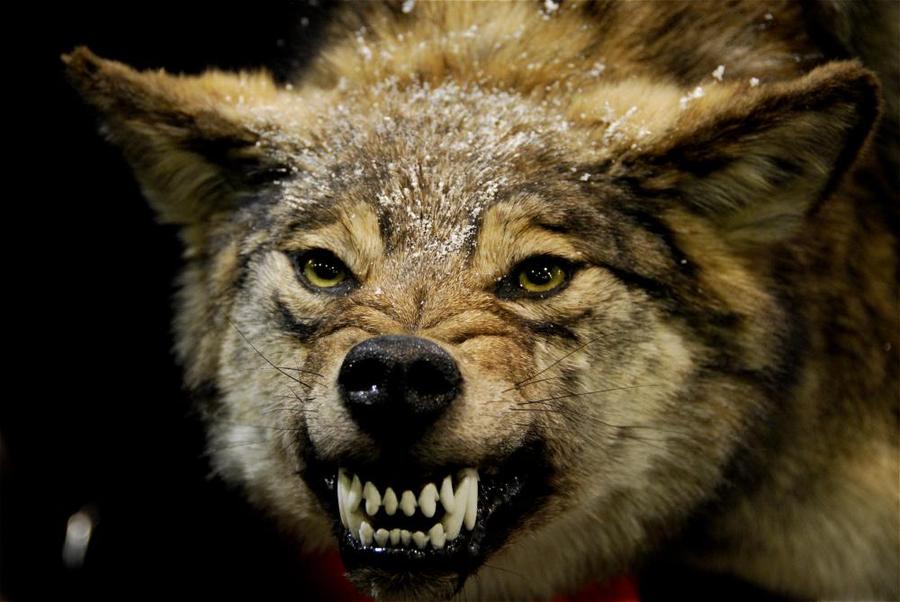"Bare His Teeth" Meaning: Unveiling Its Secrets & Significance
What exactly does it signify when someone, or something, "bares its teeth"? The expression, rooted in primal instincts, is a powerful visual cue of aggression, a universal signal of readiness to fight or a display of dominance.
At its core, the phrase "bare his teeth" paints a vivid picture, immediately conjuring an image of a snarling animal, lips curled back to expose formidable canines. While often associated with canines and other predators, the idiom transcends the animal kingdom, finding a home in human behavior as well. It's a nuanced expression, capable of conveying a range of emotions and intentions, from a subtle warning to a full-blown threat. Understanding the various contexts in which this phrase is employed is crucial for deciphering its intended meaning.
The phrase's origin lies undeniably in the animal world. Observe a dog or wolf, and you'll witness this display of teeth as a clear sign of impending aggression. It's a primal language, a warning to back off, a declaration of readiness to defend territory or resources. The bared teeth are often accompanied by other indicators of hostility: a tense posture, a low growl, perhaps even raised hackles. This combination leaves little room for ambiguity; the animal is issuing a direct challenge.
- Kenny Smiths Spouses A Look At Dawn Reavis Gwendolyn Osborne
- Kate Hudsons Political Views Unveiling Her Stance Impact
However, the meaning of "bare his teeth" isn't always straightforward. In some cases, it can simply be a display of fear. An animal, cornered and threatened, may bare its teeth not to attack, but to ward off a perceived danger. The bared teeth, in this instance, become a sign of desperation, a last resort before a potential confrontation. Context, as always, is key. Other body language cues like flattened ears, a tucked tail, or a trembling frame can provide invaluable insight into the animal's emotional state.
In the human realm, "baring one's teeth" takes on a more figurative meaning. It signifies a willingness to engage in conflict, to adopt a confrontational stance. This can manifest in several ways: a heated argument, a refusal to compromise, or even a legal battle. Someone might "bare their teeth" in response to a perceived injustice, a threat to their livelihood, or a challenge to their beliefs. In such instances, the idiom acts as a shorthand, effectively conveying the speaker's readiness to fight for what they perceive to be right.
Consider the following scenario: "When the negotiations turned sour, he bared his teeth, and we knew the deal was off." In this case, the phrase clearly signals a shift in demeanor, a move from cooperation to hostility. The individual in question is no longer willing to negotiate; instead, they are prepared to fight for their position. The idiom also has connections to the expression "fight tooth and nail," which means to try very hard to get something you want, often implying aggression or tenacity.
- Altair Jarabo Bio Career Husband Frdric Garca Latest News
- Daly City Fog Weather Neighborhood Insights
The nuance of this expression is its ability to convey strength and defiance. "I will bare my teeth to anyone who tries to take away my land," this statement, regardless of whether its a literal declaration of war or a metaphorical stance against unwanted interference, highlights the commitment to protecting what one holds dear, even at the cost of confrontation.
The idiom's usage extends beyond the animal kingdom and the battlefield. It's frequently employed in literature, politics, and everyday conversations to describe various forms of aggressive behavior. A politician might "bare his teeth" during a heated debate, a businessperson during high-stakes negotiations, or even a child who feels threatened. The intensity of the baring, and its accompanying body language, usually convey the seriousness of the situation.
One of the most striking and often misunderstood expressions is bared teeth. While it might seem straightforward, the message behind a dog baring its teeth is nuanced and can vary based on context, emotions, and the individual dog's personality. For instance, in dogs, the term bared teeth simply means a dog is showing teeth. A dog bares his teeth by curling his lips back to reveal his teeth. It is a reflexive action that occurs in reaction to certain situations. Bared teeth in a dog are often a warning. When a mouse is in an agonistic encounter, bared teeth, amongst other aggressive behaviors, will be exhibited. Bared teeth is likely to be observed during any behavioral test which requires confrontation between two mice in which at least one of the mice might react aggressively. Its important to pay attention to your dogs other body language cues, such as growling, snarling, and lunging, to determine if he is feeling threatened or aggressive. If you are unsure of the cause or it appears that the teeth are bared in an aggressive manner, its important to thoroughly remove yourself and/or your pet from the situation.
When your dog bares its teeth, its their way of communicating with you. Dogs have a wide range of emotions, and baring their teeth is an expression of those feelings. Its important to look at the whole picture rather than focusing solely on the teeth themselves. Indicate hostility and readiness to fight, as in his refusal to accept my offer made it clear i'd have to bare my teeth , or in this instance, calling in a lawyer is showing one's teeth. This figurative term transfers the snarl of a dog to human anger. Definitions by the largest idiom dictionary and synonyms for with bared teeth include fiercely, ferociously, furiously, relentlessly, savagely, angrily, brutally, forcefully, frantically and frenziedly.
Behavioral tests for assessing bared teeth. Here youll find the latest vg news, reviews of other music and gigs, occasional ramblings in the surrogate think machine. The fear expression bared teeth, flattened ears, taut neck often happens in situations where an animal is trapped, or threatened but physically can't escape. To take away the thing that is covering something so In short, a dog baring its teeth can mean anything from aggression and fear to submission and even happiness, depending on the context and other body language cues.
The origins of the phrase are rooted in the animal kingdom and the need for survival. Early humans would have observed animal behavior closely, and the act of "baring teeth" was quickly recognized as a sign of aggression. From there, it was a short jump to use the idiom to describe human behavior. Its use has evolved over time, gaining deeper meaning as society's understanding of emotions and communication has broadened.
In order to better understand this expression, let's consider a few examples of its usage:
- In a heated debate, a politician might "bare his teeth" to show defiance to an opponent.
- During a business negotiation, a negotiator might "bare their teeth" to signal that they're not willing to compromise.
- A person might "bare their teeth" when defending their family from an aggressor.
The significance of "bare his teeth" is in its ability to reveal someone's state of mind. It reveals a readiness to engage, to resist, or to defend. The action serves as a warning signal, be it in nature or society. It can signal, I am angry, or I am ready to fight, depending on the situation.
By learning to interpret this expression, we can gain a deeper understanding of how people communicate their emotions and intentions. Whether it is a physical baring of teeth or a metaphorical one, the idiom "bare his teeth" remains an effective and often evocative way to express aggression, defiance, or an unspoken readiness to engage in a fight.
- Sylvester Stallone Age The Iconic Rocky Balboa Latest Updates
- High Water Bill Mckinney Water Faqs Solutions

Bared teeth Animals photos
:max_bytes(150000):strip_icc()/dog-body-language-bared-teeth-1118207-FINAL1-5bd77bc246e0fb002dd7b2e0.png)
Bared Teeth in Dogs Aggression or Smiling?

Face baring teeth hi res stock photography and images Alamy